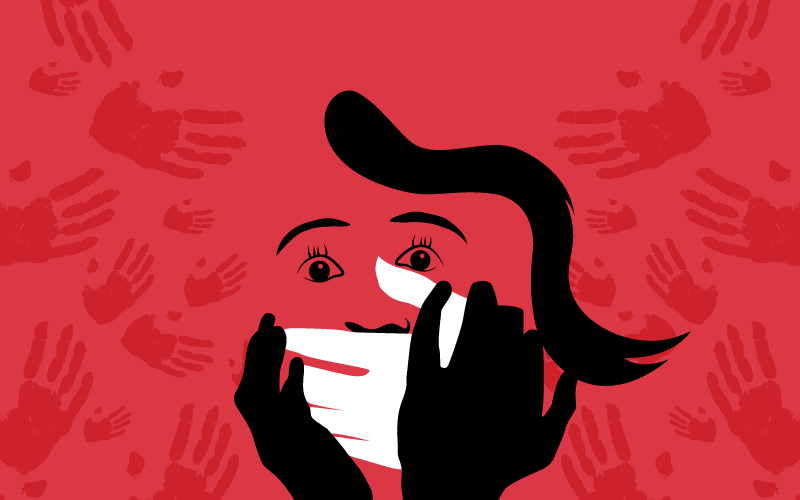According to the Bangladeshi human rights organization, Ain O Salish Kendra (ASK), a total of 1413 women were raped in 2019. Other statistics for 2019 from ASK are as follows:
*76 women killed after being raped
*258 women sexually assaulted
**18 women killed themselves after sexuaL harassment
*487 children killed (related to kidnappings, rape, attempted rapes, violence, etc).
ASK states that between January and September 2020 nearly 1,000 rape cases were reported, including 208 gang rapes. It is being said that an average of 13 women are raped daily in the country. We must bear in mind that these cases are reported to the public, law enforcement and media. There is no telling how many thousands of cases go unreported because of threats and social stigma on the victims and their families.
Recently, two cases have been reported widely and have been publicized. The first victim is a woman in Sylhet who was gang raped by members of Sheikh Hasina’s own political party, the Awami League’s student wing, the Chatro League.
The second victim was a woman whose stripping, torture, beating and assault was filmed and the video released on social media. It is reported that these perpetrators are also “well connected”. We all know what that means.
In both instances, the women were married and their husbands were tied up during the acts of aggression.
After every heinous act of violence in Bangladesh we hear the exact same monologue from the law enforcement and lawmakers: that the case will be investigated. A couple of days later, the media is rampant with news of how the accused have been arrested and in police custody.
From here on, the cases get lost into some black hole with rare, if any updates. Occasionally, the victims’ families will receive financial aid and their family members given employment in exchange for their silence. If the families are very fortunate, they will get a personal visit, a meet and greet with the Prime Minister Sheikh Hasina herself. The hugs, the “I understand your pain for I myself have lost my family” monologue occurs and the story is forever archived.
Until the next assault.
Of course, there are protests and demonstrations after these incidents and if the protestors are lucky to not be beaten to death or arrested, they are able to make their point and catch the attention of international media. However, the vicious cycle continues.
But, what is the REAL cure for the disease which plagues Bangladesh? The constant murders, disappearances, rapes, etc. are not superficial, once-in-a-while issues which will just disappear by themselves. The Awami League, try as it might, may think that putting a band aids on severe wounds and cosmetically putting a lid on the crisis is a viable leadership technique but it is not. The party fools only itself.
Sheikh Hasina either fails to remember that she has not been elected with the people’s mandate or considers the grave human rights abuses and violence which Bangladeshis face every single day as insignificant. But Bangladeshis have never forgotten the “stolen elections” and the stark reality that here is a party and a leader which enjoy rigid authoritarian power over a people who were cheated of their votes and their choices. People who are continuously persecuted even for the slightest social media post which might slightly question governmental policies, people who will not get justice for the rapes, murders, tortures and disappearances which have become their every day realities, do not forget. Adding salt to the victims’ wounds, the perpetrators of the heinous crimes are almost always linked to the Awami League, thus justice is rare.
The Awami League and its leadership grossly and wrongly underestimate the power of common citizens. They forget that Bangladesh was born from such a movement. The complete lack of transparency and accountability on the part of the government cannot possibly endure infinitely.
*Sabria Chowdhury Balland is the Editor-in-Chief of Aequitas Review.
October 7, 2020


